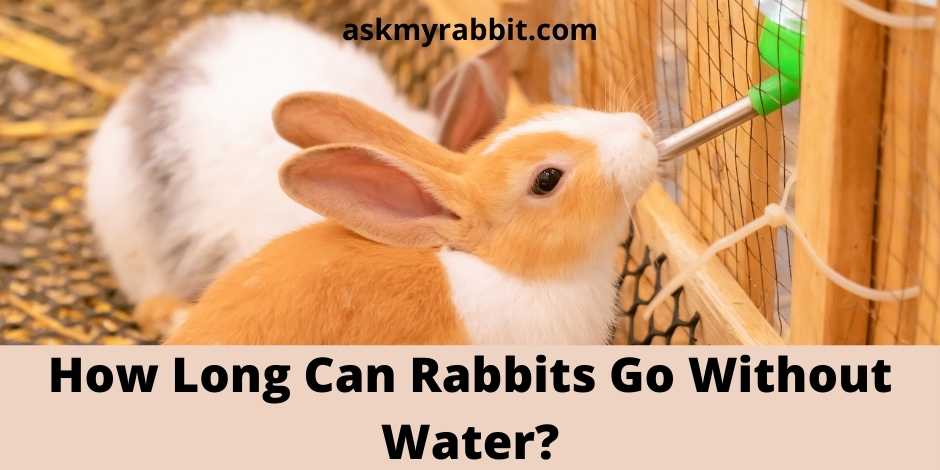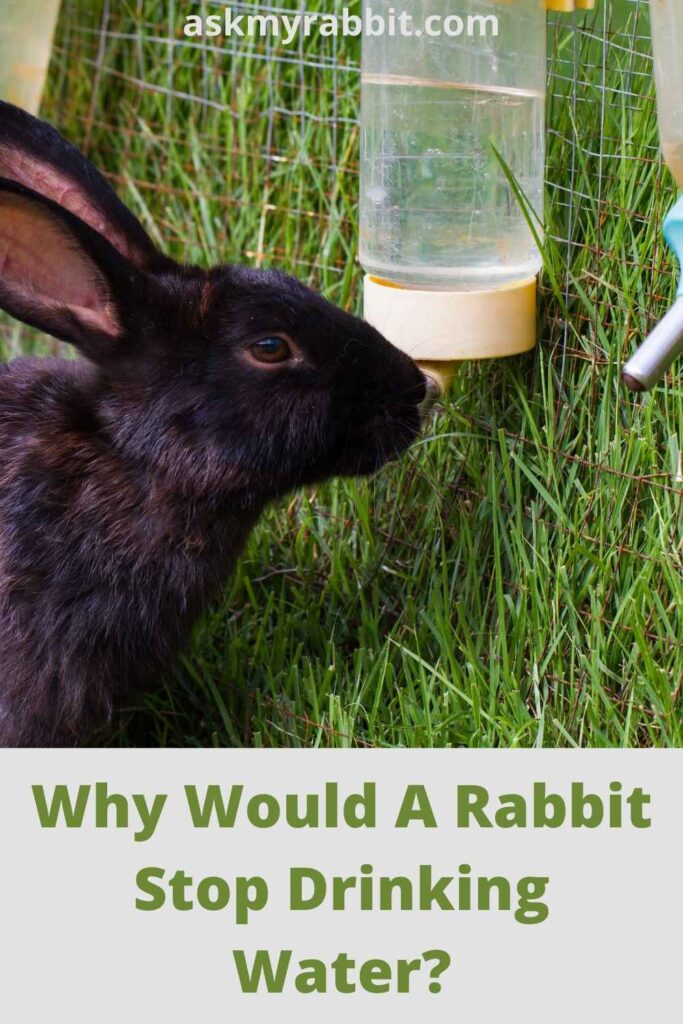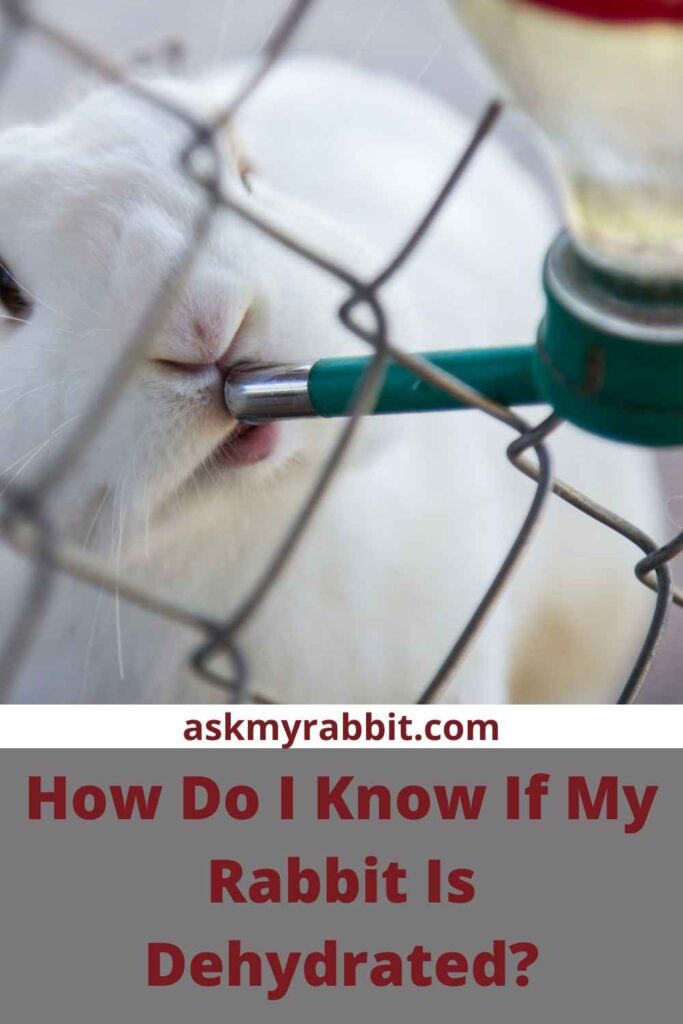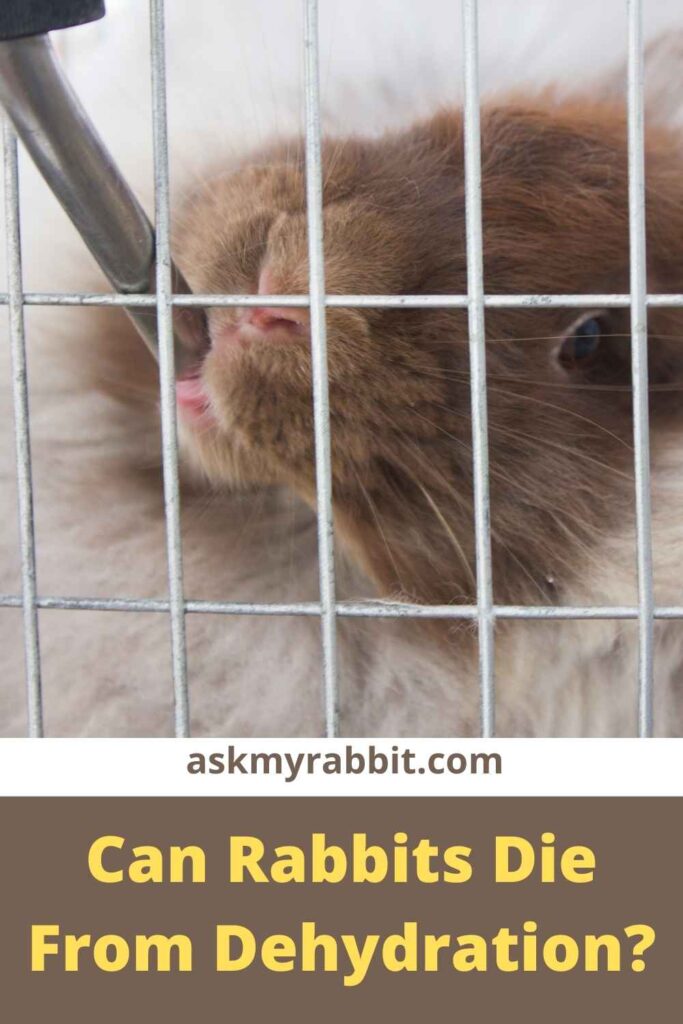A rabbit that refuses to eat or drink is in grave peril. The need of hydration in particular is critical to your pet’s life. Your pet bunny’s health will suffer if she does not have frequent access to clean drinking water.
So, you might be thinking, how long can my rabbit go without drinking water?
For most rabbits, going twenty-four hours without drinking water is deadly. It is possible to die of organ failure if she does not drink. Take action as soon as you see the first indications of dehydration, especially in the summer.
Find out why your rabbit is hesitant to drink. If you pay attention, she’ll most likely expose her problem.
It might be an issue with her bottle or bowl. She could dislike the water’s odor. It may even be a dental issue.
Whatever the reason, try to find a solution. Rabbits require water to survive.
Keep reading to learn more about your pet bunny’s water drinking habits!

Do Rabbits Drink Water?
Yes, rabbits do drink water. Water is necessary for all animals, whether they are wild or domesticated. A rabbit that does not drink on a regular basis puts her life in risk.
Water takes up a substantial portion of a rabbit’s body, as it does all living creatures. Drinking adequate water is also important for a variety of biological functions:
- Water maintains the proper pace and thickness of your rabbit’s blood flow. This guarantees that the organs of your rabbit continue to operate properly.
- Water aids in the digestion and movement of food in your rabbit’s digestive tract, finally leading to excretion.
- Excess calcium is flushed from your rabbit’s blood by water. This helps to avoid urine incontinence and other health problems, such as bladder stones.
What Happens If Rabbits Do Not Drink Water?
Dehydration is an apparent concern if a rabbit does not drink water. However, there will be other difficulties to deal with.
Urination and defecation will be difficult for your rabbit, resulting in intestinal obstructions. This may quickly escalate into a life-threatening situation.
Thankfully, rabbits are aware of the need of staying hydrated. This is why wild rabbits create warrens near fresh water sources.
How Much Water Do Rabbits Drink Daily?
A normal and healthy rabbit should drink around ten percent of her body weight in water each day. If your rabbit weighs four pounds, she should drink at least 180 millilitres of water every day.
To keep rabbits healthy, one cup of water per day is more than enough. Pour this more than once. For your rabbit’s safety, her water supply should be topped up and changed on a regular basis.
You’ll also note that none of the water bottles or bowls are smaller than 180ml. This is done on purpose.
Because rabbits like to live in pairs, vessels are designed to accommodate numerous pets. It also lowers the chances of having an empty bowl or bottle for an extended length of time.
Why Would A Rabbit Stop Drinking Water?

A rabbit may stop drinking water due to the following reasons:
1. Water Tastes Or Smells Funny
Rabbits are finicky creatures. If her water has a different flavour or scent, she will refuse to drink it. Empty and refill the bowl or bottle.
2. Temperature
It’s possible that the water you’re giving your rabbit is too hot. Rabbits like water that is the same temperature as the surrounding environment. Your rabbit will most likely refuse water that is either cold or too hot for her.
3. Dental Issues
Your rabbit may also have a toothache. Rabbits’ teeth are extremely sensitive. If your pet has dental discomfort, eating and drinking will make it worse. This is something that should be handled by a professional.
4. Dirty Container
The water container of your bunny may be filthy. You’ll need to clean and wash your pet’s water dish or bottle on a frequent basis. Your rabbit will not trust the contents if the bowl is filthy.
5. Hydration From Food
Your rabbit is hydrated as a result of her diet. If you have you boosted your pet’s consumption of leafy greens, she may believe she is already hydrated. However, keep an eye on this.
6. Alternative Source
Your rabbit has access to a different supply of water. It’s always conceivable that your rabbit is sipping from a different source. She could have discovered a leaking faucet or pipe in your home.
7. Health Issues
Your bunny has become ill. Rabbits refuse food and water due to a wide range of diseases.
It’s unusual for a rabbit to refuse to drink. Even if she’s simply being obnoxious, you must take her complaints seriously. Rabbits may be obstinate to the point of putting themselves in danger.
Is My Bunny Okay If He Is Not Drinking Water?
Rabbits, like every other living and breathing creature on the planet, require water to survive. Your rabbit is in danger if he stops drinking water.
Any animal requires water to survive, but your cherished pet’s health will suffer if they do not drink enough. It is deadly for most rabbits if they go more than twenty-four hours without drinking water.
It has the potential to cause organ failure. Any indications of dehydration must be addressed right once.
Whatever reason you come up with based on your rabbit’s behavior or activities, you must seek assistance to from your veterinarian.
How Do I Know If My Rabbit Is Dehydrated?
Dehydration is the most immediate and worrisome consequence of a rabbit not drinking water. It’s critical that you recognise the symptoms of this illness.

The symptoms of dehydration in your bunny are :
1. Tight Skin
Pinch your rabbit’s fur around her neck skin gently. Dehydration is probable if it does not snap back into place as if it were made of elastic.
2. Foul-Smelling Urine
If she’s dehydrated, the ammonia smell becomes considerably worse. It will be darker in color as well.
3. Fever
Your rabbit is in danger if her body temperature rises beyond 103 degrees Fahrenheit.
4. Lethargy And Disorientation
Dehydration has a significant impact on a rabbit’s energy levels. Your pet may also appear awkward and uncoordinated for no apparent reason.
5. Loss Of Appetite
Your rabbit’s body will not operate correctly if she does not drink. She’ll be hesitant to eat as a result of this. Her situation becomes even more dangerous as a result of this.
Rabbits are susceptible to dehydration. Pets who are young, elderly, or otherwise fragile are the ones that are most at risk. If your pet appears to be dehydrated, she has to be rehydrated right away.
Can Rabbits Die From Dehydration?

A rabbit that doesn’t drink is in grave peril. Your pet’s survival depends on its ability to stay hydrated. If the animal does not have frequent access to clean drinking water, it will suffer.
Water is consumed by your rabbit. Your pet’s life will be jeopardised if it does not drink water on a daily basis.
Water, like all living things, takes up a large portion of the rabbit’s body. Similarly, enough water consumption is necessary for a variety of biological activities.
A rabbit can die from dehydration. A fragile animal, whether elderly or young, is constantly in danger. As soon as you detect something is amiss, give your pet some water. Allow an hour or so for the rabbit to relax before giving it another drink.
Take your pet bunny and visit a veterinarian. He will properly advice you on how to solve your bunny’s drinking problems.
How Long Can Baby Bunnies Go Without Water?
A baby rabbit cannot go without drinking for more than 24 hours. This time is cut in half if the weather is very hot.
The importance of water for your pet cannot be overstated. Without it, your pet will perish.
There is a significant distinction between “no water” and “some water.” This twenty-four hour period refers to a rabbit that hasn’t had any water. A pet who drinks a bit but not enough isn’t as dangerous right away.
This problem has to be investigated. If a rabbit does not drink enough water, she will get dehydrated. Learn why your pet is hesitant to drink and take action.
How Long Can Rabbits Go Without Water In The Cold?
You’ll notice that your rabbit drinks less in the cold. This is completely normal and nothing to be concerned about. Your pet is safe as long as she is drinking at least some water.
During the winter, though, the 24-hour regulation remains in place. Even when it’s freezing outside, rabbits require water.
The body of your pet still requires water to operate. The blood and internal organs of a rabbit do not keep track of the temperature outside. To be healthy, your pet needs to drink.
Frequently Asked Questions
What Happens If A Rabbit Is Dehydrated?
Dehydration contributes to gut stasis in rabbits. This occurs when the body tries to rehydrate itself by pulling water from the rabbit’s gut contents.
How Do I Rehydrate My Rabbit?
Rehydration must be done slowly and steadily. Syringe feeding and intravenous fluids are the most effective treatments.
How Can I Help My Sick Rabbit?
Keep your rabbit hydrated and warm while you seek care. Water or soft meals in a syringe can help. Your veterinarian may recommend prescription medicine to improve your rabbit’s condition.
Final Words
It is critical to ensure that your pet receives the proper amount of water on a daily basis. Using a bottle or a bowl to assist him in drinking isn’t a huge problem because each choice has its own set of benefits.
Water will maintain the appropriate thickness of your pet’s blood flow. It guarantees that your bunny’s organs are always functioning at their best.
Water will aid your pet’s delicate digestive system in processing and moving food to the point of excretion.
You shouldn’t be concerned if the rabbit drinks a little less or a little more than the recommended ten percent of its body weight. It might be linked to the type of environment in which your pet lives or its eating habits.
Consult a veterinarian if you think that your pet’s drinking behaviour is out of the ordinary.
Drop down your queries regarding your bunny in the comment section below. We will be answering them soon!






